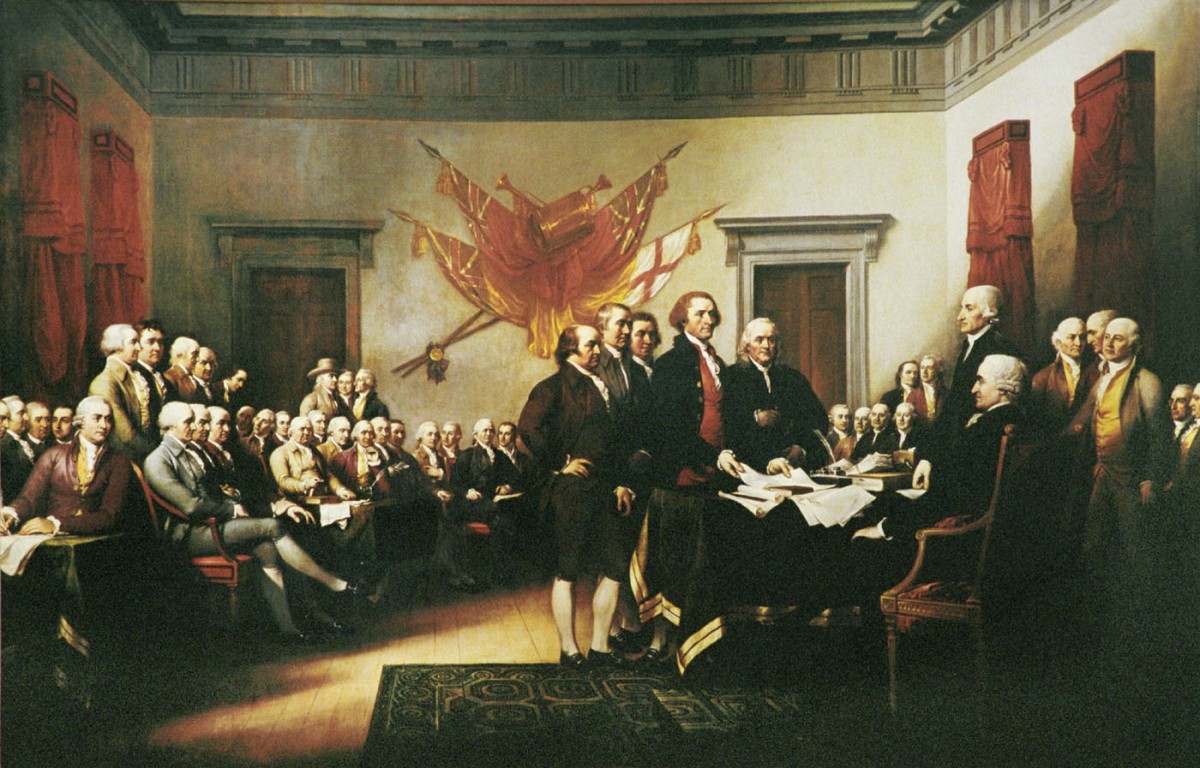By Kaleena Fraga
The Washington Monument. The Jefferson Memorial. Washington D.C. is dotted with such landmarks testifying to the importance of America’s early presidents. But there is one founding father conspicuously absent from D.C.’s memorial scene–the nation’s second president, John Adams.
Even in life, Adams worried about his place in American history. In a letter to Thomas Jefferson written in 1815, after both of their presidencies had ended, Adams wrote:
“The essence of the whole will be that Dr Franklin’s electric rod smote the earth and out sprang General Washington. Then Franklin electrified him, and thence forward those two conducted all the Policy, Negotiations, Legislations, and War.”
George Washington, he predicted, and Benjamin Franklin, would be celebrated while he, John Adams, faded away into oblivion.
A few years later, the question of Adams’ place in American memory continued to gnaw at him. On top of being forgotten, Adams worried that he would be misremembered. He lamented,
“Mausoleums, Statues, Monuments will never be erected to me. I wish them not——Panegyrical Romances, will never be written, nor flattering Orations pronounced to transmit my Character to Posterity in glorious Colours. No nor in true Colours neither.”
Adams is perhaps overshadowed in American history by the presidents whose administrations bookended his one term in office–George Washington, as the nation’s first president, and Thomas Jefferson, who called his own election “the revolution of 1800.” Yet Adams played a crucial role in the nation’s founding, no less so than either Jefferson or Washington.
One of the only founding fathers who did not own slaves, Adams participated in the Continental Congress, helped draft the Declaration of Independence, served as the nation’s first vice president, and as the nation’s second president. He was a determined advocate for the Declaration of Independence, passionately defending it while the quieter Jefferson preferred to listen and watch. Although his maneuvering to avoid war with France during his one-term in office made him unpopular–and his infamous Alien & Sedition Acts even more so–Adams once grumbled:
“I will defend my Missions to France as long as I have an Eye to direct my hand or a finger to hold my pen. They were the most disinterested And meritorious Actions of my Life. I reflect upon them with So much satisfaction that I desire No other Inscription on my Grave Stone than “Here lies John Adams who took upon himself the Responsibility of the Peace with France in the Year 1800.”
Recently, the House of Representatives took concrete steps to establish such an Adams memorial, after years of lobbying by the Adams’ family and their foundation, the Adams Memorial Foundation. Previous attempts to organize a memorial for Adams failed over indecision over the location, running into certain laws that prohibit construction on the Mall or Tidal Basin, the kind of places most of Adams’ proponents would like to see his likeness.
In July 2018 the House passed a bill that would “establish a commission to plan, fundraise and build a memorial to the country’s second president.” The bill’s sponsor, Stephen F. Lynch, who represents the district where Adams was born, Braintree, Massachusetts, believes that the entire Adams’ family deserves to be honored.
“John Adams’ legacy was instilled through his entire family,” Lynch said. “John’s wife Abigail is known as an advocate for women’s rights and his son, John Quincy Adams, later served as our nation’s sixth president.”
John Adams worried that he and his accomplishments would be forgotten. With the passage of the House bill, perhaps the second president will finally get the recognition that he deserves.

Paul Giamatti (one of my favorite actors) masterfully portrays John Adams in the TV mini-series by the same name; fascinating!
LikeLike
John Adams does not have a monument because he made decisions that people disagreed with, like avoiding war wit France and creating the Sedition and Alien Acts. I do not think this is justified because he also did a lot of good for the country. He did not have a slave, he was a founding father of the country, and he fully supported the Declaration of Independence and its importance. Monuments help inform people about important figures from the past, and they acknowledge their importance to our country. Adams had a big role in the country, so he deserves to be acknowledged by having a monument. People need to know what he has done for Americans.
LikeLike
John Adams does not have a memorial because he made very controversial decisions such as the sedation and Alien acts and avoiding war with France. Memorials are to thank people for helping them better our country in some way and John Adams being a non slave owner and a founding father I believe he deserves a memorial.
LikeLike